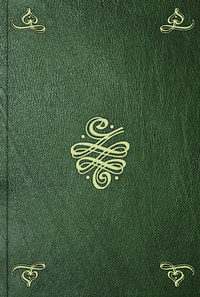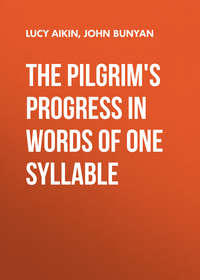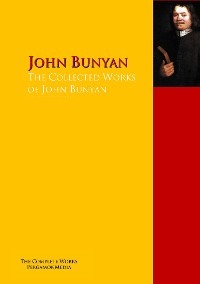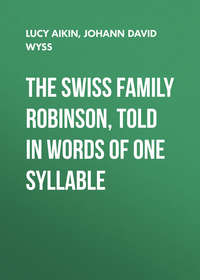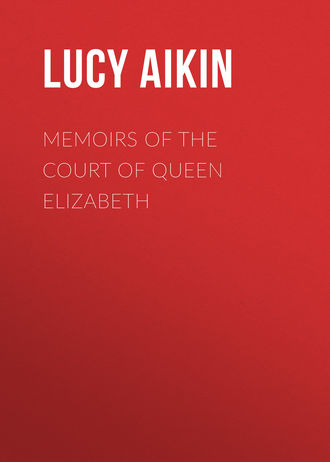 полная версия
полная версияMemoirs of the Court of Queen Elizabeth
At one tilt were borne all the following devices, which Camden particularly recommends to the notice and interpretation of the reader. Many flies about a candle, "Sic splendidiora petuntur" ("Thus brighter things are sought). Drops falling into a fire, "Tamen non extinguenda" (Yet not to be extinguished). The sun, partly clouded over, casting its rays upon a star, "Tantum quantum" (As much as is vouchsafed). A folded letter, "Lege et relege"47 (Read and reread).
It would have increased our interest in these very significant impresses, if our author could have informed us who were the respective bearers. Perhaps conjecture would not err in ascribing one of the most expressive to sir William Pickering, a gentleman whose name has been handed down to posterity as an avowed pretender to the royal marriage. That a person illustrious neither by rank nor ancestry, and so little known to fame that no other mention of him occurs in the history of the age, should ever have been named amongst the suitors of his sovereign, is a circumstance which must excite more curiosity than the scanty biographical records of the time will be found capable of satisfying. A single paragraph of Camden's Annals seems to contain nearly all that can now be learned of a man once so remarkable.
"Nor were lovers wanting at home, who deluded themselves with vain hopes of obtaining her in marriage. Namely sir William Pickering, a man of good family though little wealth, and who had obtained reputation by the cultivation of letters, by the elegance of his manners, and by his embassies to France and Germany." &c.
Rapin speaks of him as one who was encouraged to hope by some distinguished mark of the queen's favor, which he does not however particularize. Lloyd in his "Worthies" adds nothing to Camden's information but the epithet "comely" applied to his person, the vague statement that "his embassies in France and Germany were so well managed, that in king Edward's days he was by the council pitched upon as the oracle whereby our agents were to be guided abroad," and a hint that he soon retired from the court of Elizabeth to devote himself to his studies.
The earl of Arundel might be the bearer of another of these devices. We have already seen with what magnificence of homage this nobleman had endeavoured to bespeak the favorable sentiments of his youthful sovereign; and if illustrious ancestry, vast possessions, established consequence in the state, and long experience in public affairs, might have sufficed to recommend a subject to her choice, none could have advanced fairer pretensions than the representative of the ancient house of Fitzalan. The advanced age of the earl was indeed an objection of considerable and daily increasing weight; he persevered however in his suit, notwithstanding the queen's visible preference of Dudley and every other circumstance of discouragement, till the year 1566. Losing then all hopes of success, and becoming sensible at length of pecuniary difficulties from the vast expense which he had lavished on this splendid courtship, he solicited the permission of his royal mistress to retire for a time into Italy.
While it lasted, however, the rivalry of Arundel and Dudley, or rather, in the heraldic phraseology of the day, that of the White Horse and the Bear, divided the court, inflamed the passions of the numerous retainers of the respective candidates, and but for the impartial vigilance of Cecil might have ended in deeds of blood.
In the Burleigh Papers is a confession of one Guntor, a servant or retainer of the earl of Arundel, who was punished for certain rash speeches relative to this competition, from which we learn some curious particulars. He says, that he once fell in talk with a gentleman named Cotton, who told him, that the queen, having supped one evening at lord Robert Dudley's, it was dark before she could get away; and some servants of the house were sent with torches to light her home. That by the way her highness was pleased to enter into conversation with the torch-bearers, and was reported to have said, that she would make their lord the best that ever was of his name. As the father of lord Robert was a duke, this promise was understood to imply nothing less than her design of marrying him. On this Guntor answered, that he prayed all men might take it well, and that no trouble might arise thereof; afterwards he said, that he thought if a parliament were held, some men would recommend lord Robert, and some his own master to the queen for a husband; and so it might fortune there would rise trouble among the noblemen, adding, "I trust the White Horse will be in quiet, and so shall we be out of trouble; it is well known his blood as yet was never attaint, nor was he ever man of war, wherefore it is likely that we shall sit still; but if he should stomach it, he were able to make a great power." In his zeal for the cause of his lord, he also wished that his rival had been put to death with his father, "or that some ruffian would have dispatched him by the way as he hath gone, with some dag (pistol) or gun."
So high did words run on occasion of this great contest.
CHAPTER XII
1560On the conduct of Elizabeth as head of the church.—Sketch of the history of the reformation in England.—Notices of Parker, Grindal, and Jewel.
There was no part of the regal office the exercise of which appeared so likely to expose Elizabeth to invidious reflections, as that which comprehended the management of ecclesiastical affairs. Few divines, though protestant, could behold without a certain feeling of mingled jealousy and disdain, a female placed at the head of the religion of the country, and by the whole papal party such a supremacy was regarded perhaps as the most horrible, certainly as the most preposterous, of all the prodigies which heresy had yet brought forth. "I have seen the head of the English church dancing!" exclaimed, it is said, with a sarcastic air, an ambassador from one of the catholic courts of Europe.
A more striking incongruity indeed could scarcely be imagined, than between the winning manners and sprightly disposition of this youthful princess, as they displayed themselves amid the festivities of her court and the homage of her suitors, and the grave and awful character of Governess of the church, with which she had been solemnly invested.
In virtue of this office, it was the right and duty of the queen to choose a religion for the country; to ordain its rites and ceremonies, discipline, and form of church government; and to fix the rank, offices and emoluments of its ministers. She was also to exercise this power entirely at her own discretion, free from the control of parliament or the interference of the clerical body, and assisted only by such commissioners, lay or ecclesiastical, as it should please herself to appoint.
This exorbitant authority was first assumed by her arbitrary father when it became his will that his people should acknowledge no other pope than himself; and the servile spirit of the age, joined to the ignorance and indifference on religious subjects then general, had caused it to be submitted to without difficulty. In consequence, the title of Head of the Church had quietly devolved upon Edward VI. as part of his regal style; and while the duties of the office were exercised by Cranmer and the Protector, the nation, now generally favorable to the cause of reform, was more inclined to rejoice in its existence than to dispute the authority by which it had been instituted. Mary abhorred the title, as a badge of heresy and a guilty usurpation on the rights of the sovereign pontiff, and in the beginning of her reign she laid it aside, but was afterwards prevailed upon to resume it, because there was a convenience in the legal sanction which it afforded to her acts of tyranny over the consciences of men.
The first parliament of Elizabeth, in the fervor of its loyalty, decreed to her, as if by acclamation, all the honors or prerogatives ever enjoyed by her predecessors, and it was solely at her own request that the appellation of Head, was now exchanged for the less assuming one of Governess, of the English church. The power remained the same; it was, as we have seen, of the most absolute nature possible; since, unlimited by law, it was also, owing to its recent establishment, equally uncontrolled by custom. It remains to the delineator of the character of Elizabeth to inquire in what manner she acquitted herself, to her country and to posterity, of the awful responsibility imposed upon her by its possession.
A slight sketch of the circumstances attending the introduction of the reformation into England, will serve to illustrate this important branch of her policy.
On comparing the march of this mighty revolution in our own country with its mode of progress amongst the other nations of Europe, one of the first remarks which suggests itself is, that in no other country was its course so immediately or effectually subjected to the guidance and control of the civil power.
In Switzerland, the system of Zwingle, the earliest of the reformers, had fully established itself in the hearts of his fellow-citizens before the magistracies of Zurich and its neighbouring republics thought proper to interfere. They then gave the sanction of law to the religion which had become that of the majority, but abstained from all dictation on points of which they felt themselves incompetent judges.
In Germany, the impulse originating in the daring mind of Luther, was first communicated to the universities, to the lower orders of the clergy, and through them to the people. The princes of the empire afterwards took their part as patrons or persecutors of the new opinions; but in either case they acted under the influence of ecclesiastics, and no where arrogated to themselves the character of lawgivers in matters of faith.
At Geneva, the vigor and dexterity of Calvin's measures brought the magistracy under a complete subjection to the church, of which he had made himself the head, and restricted its agency in religious concerns to the execution of such decrees as the spiritual ruler saw good to promulgate.
The system of the same reformer had recently been introduced into Scotland by the exertions of John Knox, a disciple who equalled his master in the fierceness of his bigotry, in self-opinion, and in the love of power, whilst he exceeded him in turbulence of temper and ferocity of manners: and here the independence of the church on the state, or rather its paramount legislative authority in all matters of faith, discipline and worship, was held in the loftiest terms. The opposition which this doctrine, so formed for popularity, experienced from the government in the outset, was overborne or disregarded, and it was in despite of the utmost efforts of regal authority that the new religion was established by an act of the Scottish parliament.
In England, on the contrary, the passions of Henry VIII. had prompted him to disclaim submission to the papal decrees before the spirit of the people demanded such a step,—before any apostle of reformation had arisen in the land capable of inspiring the multitude with that zeal which makes its will omnipotent, and leaves to rulers no other alternative than to comply or fall,—yet not before the attachment of men to the ancient religion was so far weakened, that the majority could witness its overthrow with patience if not with complacency.
To have timed this momentous step so fortunately for the cause of prerogative might in some princes have been esteemed the result of profound combinations,—the triumph of political sagacity; in Henry it was the pure effect of accident: but the advantages which he derived from the quiescent state of the public mind were not on this account the less real or the less important, nor did he suffer them to go unimproved. On one hand, no considerable opposition was made to his assumption of the supremacy; on the other, the spoil of the monasteries was not intercepted in its passage to the royal coffers by the more rapid movements of a populace intoxicated with fanatical rage or fired with hopes of plunder. What appeared still more extraordinary, he found it practicable, to the end of his reign, to keep the nation suspended, as to doctrine and the forms of worship, in that nice equilibrium between protestant and papist which happened best to accord with his individual views or prejudices.
Cranmer, who has a better title than any other to be revered as the father of the Anglican church, showed himself during the life of Henry the most cautious and complaisant of reformers. Aware that any rashness or precipitation on the part of the favorers of new opinions might expose them to all the fury of persecution from a prince so dogmatical and violent, he constantly refrained from every alarming appeal to the sense of the people on theological questions, and was content to proceed in his great work step by step, with a slow, uncertain, and interrupted progress, at the will of that capricious master whose vacillations of humor or opinion he watched with the patience, and improved with the skill, of a finished courtier.
Administered in so qualified and mitigated a form, the spirit of reformation exhibited in this country little of its stronger and more turbulent workings. No sect at that time arose purely and peculiarly English: our native divines did not embrace exclusively, or with vehemence, the tenets of any one of the great leaders of reform on the continent, and a kind of eclectic system became that of the Anglican church from its earliest institution.
The respective contributions to this system of the most celebrated theologians of the age may be thus stated. It was chiefly from Zwingle,—the first, in point of time, of all the reformers of the sixteenth century, and the one whose doctrine on the eucharist and on several other points diverged most widely from the tenets of the church of Rome,—that our principal opponents of popery in the reign of Henry VIII. derived their notions. Latimer, Ridley, Cranmer himself, were essentially his disciples.
By others, the system of Luther was in the whole or in part adopted. But this reformer was personally so obnoxious to Henry, on account of the disrespectful and acrimonious style of his answer to the book in which that royal polemic had formerly attacked his doctrine, that no English subject thought proper openly to profess himself his follower, or to open any direct communication with him. Thus the Confession of Augsburg, though more consonant to the notions of the English monarch than any other scheme of protestant doctrine, failed to obtain the sanction of that authority which might have rendered it predominant in this country.
A long and vehement controversy on the subject of the eucharist had been maintained between the German and Swiss divines during the later years of Henry; but at the period of Edward's accession, when Cranmer first undertook the formation of a national church according to his own ideas of gospel truth and political expediency, this dispute was in great measure appeased, and sanguine hopes were entertained that a disagreement regarded as dangerous in a high degree to the common cause of religious reform might soon be entirely reconciled.
Luther, the last survivor of the original disputants, was lately dead; and to the post which he had held in the university of Wittemberg, as well as to the station of head of the protestant church, Melancthon had succeeded. This truly excellent person, who carried into all theological debates a spirit of conciliation equally rare and admirable, was earnestly laboring at a scheme of comprehension. His laudable endeavours were met by the zealous co-operation of Calvin, who had by this time extended his influence from Geneva over most of the Helvetic congregations, and was diligent in persuading them to recede from the unambiguous plainness of Zwingle's doctrine,—which reduced the Lord's supper to a simple commemoration,—and to admit so much of a mystical though spiritual presence of Christ in that rite, as might bring them to some seeming agreement with the less rigid of the followers of the Lutheran opinion. At the same time Bucer, who presided over the flourishing church of Strasburg, was engaged in framing yet another explication of this important rite, by which he vainly hoped to accommodate the consciences of all these zealous and acute polemics.
Bucer was remarkable among the theologians of his time by a subtility in distinction resembling that of the schoolmen, and by a peculiar art of expressing himself on doctrinal points in terms so nicely balanced, and in a style of such labored intricacy, that it was scarcely possible to discover his true meaning, or pronounce to which extreme of opinion he most inclined. These dubious qualifications, by which he disgusted alternately both Calvin and the more zealous Lutherans, were however accompanied and redeemed by great learning and diligence; by a remarkable talent for public business, which rendered him eminently useful in all the various negotiations with temporal authorities, or with each other, in which the leaders of the reformation found it necessary to engage; by a mild and candid spirit, and by as much of sincerity and probity as could co-exist with the open defence of pious frauds.
The whole character of the man appeared to Cranmer admirably fitted for co-operation in the work which he had in hand. On the difficult question of the eucharist Bucer would preserve the wariness and moderation which appeared essential in the divided state of protestant opinion: on justification and good works he held a middle doctrine, which might conciliate the catholics, and was capable of being so interpreted as not greatly to offend the moderate Lutherans: on the subject of church government he had not yet committed himself, and there was little doubt that he would cheerfully submit to the natural predilection of the archbishop for prelacy. His erudition and his morals could not fail to prove serviceable and creditable to the great cause of national instruction and reformed religion. Accordingly an invitation was sent to him, in the name of the young king, to come and occupy the theological chair in the university of Cambridge; and in the year 1549 he reached England, and began to discharge with much assiduity the duties of his office.
The name and influence of Bucer became very considerable in this country, though his career was terminated by death within two years after his arrival. A public funeral, attended by all the members of the university and many other persons of eminence, attested the consideration in which he was held by Edward's ministers; the subsequent disinterment of his remains by order of cardinal Pole, for the purpose of committing his bones to the flames, gave further evidence of his merits in the protestant cause; and in the composition of our national Articles, it has been said that no hand has left more distinguishable traces of itself than that of Bucer.
From Strasburg also the university of Oxford was destined to receive a professor of divinity in the person of the celebrated Peter Martyr. This good and learned man, a Florentine by birth and during some years principal of a college of Augustines at Naples, having gradually become a convert to the doctrines of the reformers, and afterwards proceeding openly to preach them, was compelled to quit his country in order to avoid persecution. Passing into Switzerland, he was received with affectionate hospitality by the disciples of Zwingle at Zurich; and after making some abode there he repaired to Basil, whence Bucer caused him to be invited to fill the station of theological professor at Strasburg. He was also appointed the colleague of this divine in the ministry, and their connexion had subsisted about five years in perfect harmony when the offers of Cranmer induced the two friends to remove into England.
It is to be presumed that no considerable differences of opinion on points deemed by themselves essential could exist between associates so united; but a greater simplicity of character and of views, and superior boldness in the enunciation of new doctrines, strikingly distinguished the proceedings of Peter Martyr from those of his friend. With respect to church government, he, like Bucer, was willing to conform to the regulations of Cranmer and the English council; but he preached at Oxford on the eucharist with so Zwinglian a cast of sentiment, that the popish party raised a popular commotion against him, by which his life was endangered, and he was compelled for a time to withdraw from the city. Tranquillity was soon however restored by the interference of the public authority, and the council proceeded vigorously in obliterating the last vestiges of Romish superstition. Ridley throughout his own diocese now caused the altars to be removed from the churches, and communion-tables to be placed in their room; and, as if by way of comment on this alteration, Martyr and others procured a public recognition of the Genevan as a sister church, and the admission into the English service-book of the articles of faith drawn up by Calvin.
During the remainder of Edward's reign the tide of public opinion continued running with still augmenting velocity towards Geneva. Calvin took upon him openly to expostulate with Bucer on the preference of state expediency to Scripture truth, betrayed, as he asserted, by the obstinate adherence of this divine to certain doctrines and observances which savoured too much of popery; and it is probable that a still nearer approach might have been made to his simpler ritual, but for the untimely death of the zealous young king, and the total ruin of the new establishment which ensued.
Just before the persecutions of Mary drove into exile so many of the most zealous and conscientious of her protestant subjects, the discord between the Lutherans and those whom they styled Sacramentarians had burst out afresh in Germany with more fury than ever. The incendiary on this occasion was Westphal, superintendant of the Lutheran church of Hamburgh, who published a violent book on the subject of the eucharist; and through the influence of this man, and of the outrageous spirit of intolerance which his work had raised, Latimer and Ridley were stigmatized by fellow protestants as "the devil's martyrs," and the Lutheran cities drove from their gates as dangerous and detestable heretics the English refugees who fled to them for shelter. By those cities or congregations, on the contrary,—whether in Germany, France, or Switzerland,—in which the tenets either of Zwingle or Calvin were professed, these pious exiles were received with open arms, venerated as confessors, cherished as brethren in distress, and admitted with perfect confidence into the communion of the respective churches.
Treatment so opposite from the two contending parties, between which they had supposed themselves to occupy neutral ground, failed not to produce corresponding effects on the minds of the exiles. At Frankfort, where the largest body of them was assembled, and where they had formed an English congregation using king Edward's liturgy, this form of worship became the occasion of a division amongst themselves, and a strong party soon declared itself in favor of discarding all of popish forms or doctrine which the English establishment, in common with the Lutheran, had retained, and of adopting in their place the simpler creed and ritual of the Genevan church.
It was found impracticable to compromise this difference; a considerable number finally seceded from the congregation, and it was from this division at Frankfort that English nonconformity took its birth. No equally strong manifestation of opinion occurred amongst the exiles in other cities; but on the whole it may be affirmed, that the majority of these persons returned from their wanderings with their previous predilection for the Calvinistic model confirmed and augmented by the united influence of the reasonings and persuasions of its ablest apostles, and of those sentiments of love and hatred from which the speculative opinions of most men receive an irresistible though secret bias.
Their more unfortunate brethren, in the mean time, who, unwilling to resign their country, or unable to escape from it, had been compelled to look persecution in the face and deliberately acquaint themselves with all its horrors, were undergoing other and in some respects opposite influences.
An overpowering dread and abhorrence of the doctrines of the church of Rome must so have absorbed all other thoughts and feelings in the minds of this dispersed and affrighted remnant of the English church, as to leave them little attention to bestow upon the comparatively trifling objects of dispute between protestant and protestant. They might even be disposed to regard such squabbles with emotions of indignation and disgust, and to ask how brethren in affliction could have the heart to nourish animosities against each other. The memory of Edward VI. was deservedly dear to them, and they would contemplate the restoration of his ritual by the successor of Mary as an event in which they ought to regard all their prayers as fulfilled:—yet the practice, forced upon them by the vigilance of persecution, of holding their assemblies for divine worship in places unconsecrated, with the omission of every customary ceremonial and under the guidance frequently of men whom zeal and piety alone had ordained to the office of teachers and ministers of religion, must amongst them also have been producing a secret alienation from established forms and rituals, and a propensity to those extemporaneous effusions of devotion, or urgencies of supplication, which seem best adapted to satisfy the wants of the pious soul under the fiery trial of persecution and distress. The Calvinistic model therefore, as the freest of all, and that which most industriously avoided any resemblance of popish forms, might be the one most likely to obtain their suffrage also.


